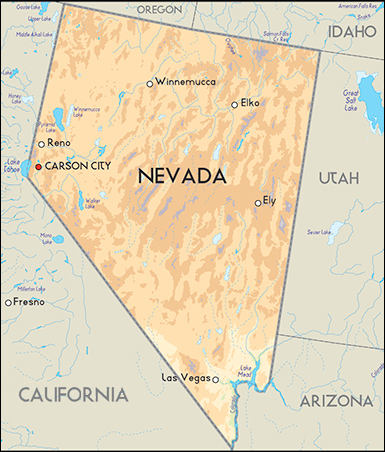By Jim Ellis
 June 10, 2020 — Voters in Georgia, Nevada, North Dakota, South Carolina, and West Virginia chose nominees last night or sent finalists to runoffs in the two southern states.
June 10, 2020 — Voters in Georgia, Nevada, North Dakota, South Carolina, and West Virginia chose nominees last night or sent finalists to runoffs in the two southern states.
• GEORGIA: Former vice president Joe Biden clinched his party’s presidential nomination with an 83 percent victory in the Georgia primary and sweeping the state’s 105 delegates. By all counts, Biden has secured the 1,991 bound first-ballot delegate votes to seal the nomination.
In the Democratic US Senate primary, former congressional candidate and documentary filmmaker Jon Ossoff looks to have fallen just short of the 50 percent mark to secure the party nomination. If the trend holds as the final votes are counted, he will advance to an Aug. 11 runoff election. After trailing former lieutenant governor nominee Sarah Riggs Amico most of the night, ex-Columbus mayor Teresa Tomlinson appears to have secured the second runoff position in a close vote.
Logistical problems in the Atlanta area could delay the final totals, so whether Ossoff won outright and deciding the second runoff position are still not necessarily determined. It is likely, however, that a runoff will occur between Ossoff and Tomlinson, assuming the latter candidate chooses to continue. The percentage spread between the two is a lopsided 49-16 percent.
Numbers are also not final in the Atlanta suburban 7th District, but it appears that 2018 Democratic nominee Carolyn Bourdeaux, who came within 420 votes of winning the seat in that year, came close to avoiding a runoff with 46 percent of the vote. Should this trend hold, she will face state Rep. Brenda Lopez Romero (D-Norcross) in the secondary election.
On the Republican side, retired Navy officer and physician Rich McCormick won the crowded primary outright as he topped 55 percent, an impressive total within a field of seven candidates. State Sen. Renee Unterman (R-Gwinnett County) placed a distant second.
In the open 9th District, the seat that Rep. Doug Collins (R-Gainesville) is leaving to run for the Senate, state Rep. Matt Gurtler (R-Tiger) and retired Navy officer Andrew Clyde will advance to the Aug. 11 runoff. Former US Rep. Paul Broun finished in fourth position. In this safely Republican northeast Georgia district, the runoff winner will clinch the general election.


 May 8, 2020 — The Silver State of Nevada, with six Electoral College votes, has been regarded as a swing state in most 21st Century presidential elections, but in projecting the 2020 vote, it is routinely considered as a place destined to land in the Democratic column. But, could Nevada ultimately be in play for President Trump?
May 8, 2020 — The Silver State of Nevada, with six Electoral College votes, has been regarded as a swing state in most 21st Century presidential elections, but in projecting the 2020 vote, it is routinely considered as a place destined to land in the Democratic column. But, could Nevada ultimately be in play for President Trump?
